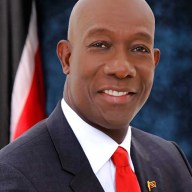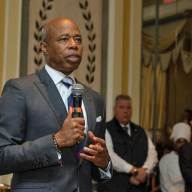This “class warfare” slogan that Republicans and the Tea Party have latched onto by way of condemnation of efforts to exact a tax increase from the rich, as well as defending their anti-regulation position with respect to big business, is becoming burdensome enough for its advocates that one wonders whether the strategy masterminds put any thought into “class warfare” as a political battle cry. More curiously, the talking heads for that camp seem clueless or not to care, as they keep right on intimating there’s a move afoot to upset the applecart of society’s upper echelon.
In the first place, it takes real gumption, more so in these lousy economic times, to stand in proud defense of the well-to-do. And after the ’08 meltdown in the financial sector, from which the country is still reeling, puzzlement is understandable over the kind of mind set that holds rigidly to a policy of hands off the lords of business. Repercussions from that spate of financial recklessness are with us constantly. A few days ago it was Citigroup in the spotlight, agreeing to a $285 million settlement of a civil complaint filed by the Securities and Exchange Commission, that Citigroup had defrauded customers who bought knowingly high-risk mortgage-related investments packaged by the bank.
The opening lines of Edward Wyatt’s New York Times report on last week’s settlement are worthy of reprise: “As the housing market began its collapse, Wall Street firms and sophisticated investors searched for ways to profit. Some of them found an easy method: Stuff a portfolio with risky mortgage-related investments, sell it to unsuspecting investors and bet against it.”
Citigroup, let’s remember, isn’t alone in this particular display of Wall Street greed. And of course along with agreeing to the settlement, in which those unsuspecting buyers were to be refunded their investments with interest, came the patented “not guilty of any wrongdoing” caveat from the perpetrators. It takes a special level of brazen to insist that regulation should be off limits, even in the face of the shameless manipulation engaged in by financial sector practitioners, to the nation’s detriment.
The finance area is by no means the whole enchilada here. When the Republican/Tea Party chorus breaks into its anti-regulation, leave-business-alone song, it’s an ode to the entire business world. Which makes it legit to ask how is it possible, in the face of behavior among the titans of finance that was flat-out unethical and worse, to remain committed to the notion that the status quo works just fine.
In truth, for Republicans this hardly requires any leap of faith. Republicans and money have traditionally been a hand-in-glove combination. Prior to the campaign coffers Bill Clinton amassed when he first ran for president in 1992, the lop-sided disparity between Republican war chests and those of Democratic opponents was embarrassing (Obama of course now breaking the sound barrier with his mega chest in ‘08 and what appears to be something similar for next year’s duel). Even so, Republicans’ identification with the moneyed interests holds solidly true.
With the Tea Party (whatever constitutes that amorphous grouping) riding shotgun on this pro-big business kick, there’s a certain bafflement. Isn’t this supposed to be a mass movement, anti-establishment, anti-incumbency rage and all that good stuff? Whereabouts in that profile do we find the rationale for cozying up to industrial giants and the wealthy? Which leads right back to what’s really at the core of the Tea Party’s reason for being. When this Tea Party phenomenon first barged in on our consciousness in the summer of 2009, backlash against health care reform was ostensibly the rallying point. That summer’s eruption of despicable images left many of us with the clear understanding that backlash against an African American president, and not his efforts to overhaul health care, was really behind the hostile outcry of this alleged new Tea Party kid on the block. Frankly, there hasn’t been much to shake that conviction, notwithstanding Herman Cain, a couple of Blacks elected to Congress in last year’s Republican surge and others of their ilk.
Really, how is the contradiction to be explained, where supposedly grassroots folk agitate to “get government off our backs,” side with politicians who rail against Medicare and who advocate risky changes in Social Security? Who are these plebes, so enamored of the top one percent of the population that controls such a lion’s share of the nation’s wealth, that they support a party which oppose a modest tax increase on these well-heeled that would positively impact the overall economic condition? The incongruity of the Tea Party representing itself as a movement of “the people” should be very obvious, and it’s quite time that some of its leading lights owned up to where they’re really coming from.
That economic disparity means that class warfare, as we know so well, has been a fact of life in the society for a long time…no GOP highlighting of it as a pathway to political capital was necessary. The besieged millions include many who see the dynamics of the economic imbalance for what they are. There are unfortunately others, similarly besieged, trapped in a social time warp whose hard edge incomprehensibly accords a lesser place even to cold economic reality.






















